
Kód: 05023315
Time and Process in Ancient Judaism
Autor Sacha Stern
This illuminating study is about the absence of a concept of time in ancient Judaism, and the predominance instead of process in the ancient Jewish world-view. Sacha Stern draws his evidence from the complete range of Jewish sourc ... celý popis
- Jazyk:
 Angličtina
Angličtina - Väzba: Brožovaná
- Počet strán: 152
Nakladateľ: The Littman Library of Jewish Civilization, 2007
- Viac informácií o knihe

Mohlo by sa vám tiež páčiť
-

Time's Whistle and other poems by R C
40.67 € -

New, Objective, Pro-Objectivity Normative Theory
63.49 € -

Blenheim Squadrons of World War 2
23.02 € -10 % -

Better World
64.91 €
Darujte túto knihu ešte dnes
- Objednajte knihu a vyberte Zaslať ako darček.
- Obratom obdržíte darovací poukaz na knihu, ktorý môžete ihneď odovzdať obdarovanému.
- Knihu zašleme na adresu obdarovaného, o nič sa nestaráte.
Viac informácií o knihe Time and Process in Ancient Judaism
Nákupom získate 97 bodov
 Anotácia knihy
Anotácia knihy
This illuminating study is about the absence of a concept of time in ancient Judaism, and the predominance instead of process in the ancient Jewish world-view. Sacha Stern draws his evidence from the complete range of Jewish sources from this period: mainly early rabbinic literature, but also Jewish Hellenistic literature, Qumran sources, Apocrypha and Pseudepigrapha, and inscriptions. Following a methodological introduction drawing on anthropological studies, the author starts by focusing on the word used for time in early rabbinic literature, zeman. He shows that it means only 'points in time' or finite periods of time, but that the concept of time as a continuum-of time as a whole-is totally absent from rabbinic texts. It is unknown even in such obvious contexts as discussions of age, accounts of the creation of the universe, and in other matters relating to timing and time reckoning, the calendar, and chronology. He shows convincingly that although timing was central to early rabbinic halakhah, it was not conceived of as a measuring of the time dimension, but rather as a way of co-ordinating different processes (e.g. co-ordinating the reading of the Shema with sunrise or dusk). The calendar, likewise, was not a measurement of time but an astronomical scheme, and therefore only process-related. Similar conclusions apply to early rabbinic notions of chronology, history, and even ethics: the notion of time as an entity or a resource, so familiar in modern society, is completely unknown in rabbinic ethics. Further confirmation emerges from the author's study of non-rabbinic ancient Jewish sources in Greek, Hebrew and Aramaic, including Apocryphal and Pseudepigraphic works and Dead Sea Scrolls, sources that are also concerned with the calendar and chronology but without any notion of time per se. The absence of a concept of time is also attested in other Near eastern cultures, but stands in contrast to Graeco-Roman culture with its pervasive concept of chronos. The ancient Jewish view also stands in contrast with medieval Judaism, when the concept of time became well established in ethics, philosophy, biblical exegesis, and halakhah, a development which Stern attributes partly to the influence of Greek philosophy on medieval Jewish thinkers. He concludes with reflections on the wider implications of these findings, especially regarding the limited Hellenization of ancient Judaism and its cultural isolation within the Graeco-Roman world. This perceptive work, clearly, cogently, and convincingly argued, offers a new perspective on the world-view of ancient Judaism and its links with other cultures in the Near East of late antiquity.
 Parametre knihy
Parametre knihy
Zaradenie knihy Knihy po anglicky Humanities Religion & beliefs Religion: general
39.05 €
- Celý názov: Time and Process in Ancient Judaism
- Autor: Sacha Stern
- Jazyk:
 Angličtina
Angličtina - Väzba: Brožovaná
- Počet strán: 152
- EAN: 9781904113683
- ID: 05023315
- Nakladateľ: The Littman Library of Jewish Civilization
- Hmotnosť: 227 g
- Rozmery: 235 × 155 × 8 mm
- Dátum vydania: 10. January 2007
Obľúbené z iného súdka
-

The Righteous Mind
14.39 € -22 % -

The Happiness Hypothesis: Finding Modern Truth in Ancient Wisdom
15.61 € -26 % -

Sacred and the Profane
14.39 € -16 % -

God Part of the Brain
17.13 € -18 % -

Hinduism Omnibus
35.09 € -

Miracle of Mindfulness
13.18 € -24 % -

Myth of Disenchantment
39.05 € -

Right Side of History
23.12 € -20 % -

As a Man Thinketh
5.87 € -7 % -

Return of the God Hypothesis
23.73 € -23 % -

Conversations With God
12.77 € -19 % -

Scientific Healing Affirmations
6.89 € -

The Psychology of Selling
15.51 € -22 % -

The Perennial Philosophy
16.63 € -13 % -

The Greatest Salesman in the World
8.92 € -21 % -

Waking Up
10.13 € -29 % -

Screwtape Letters
10.95 € -24 % -
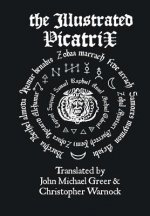
Illustrated Picatrix: the Complete Occult Classic of Astrological Magic
59.23 € -1 % -
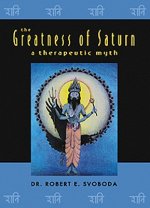
The Greatness of Saturn
13.08 € -19 % -

Holy Bible
60.04 € -

Stoic Six Pack: Meditations of Marcus Aurelius the Golden Sayings Fragments and Discourses of Epictetus Letters from a Stoic and the Enchiridion
34.78 € -

End of Faith
9.83 € -20 % -

Secular Age
88.25 € -

American Cosmic
19.87 € -29 % -
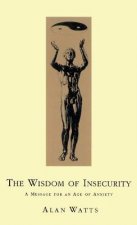
Wisdom Of Insecurity
13.38 € -28 % -

Anarchy Evolution
13.79 € -28 % -
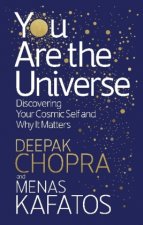
You Are the Universe
12.87 € -29 % -

History of Christianity
20.38 € -17 % -

Good Morning, Holy Spirit
15.31 € -28 % -

Nature of the Psyche
17.74 € -16 % -

Religions Book
19.87 € -22 % -

Living Your Strengths
28.19 € -9 % -

God-Shaped Brain
15.71 € -25 % -

Darwin's Doubt
19.06 € -18 % -

Mohammed
21.39 € -

Experience of God
17.74 € -16 % -

Sekhem Apep
21.80 € -

ADAMU - Luciferian Tantra and Sex Magick
18.96 € -1 % -

Oxford History of Christianity
27.99 € -10 % -

Unknown Life of Jesus Christ
9.12 € -2 % -

Poetry, Language, Thought
15.71 € -14 % -

Improbable Planet - How Earth Became Humanity`s Home
18.66 € -11 % -

Handbook of Yoruba Religious Concepts
16.63 € -8 % -

Essence of Christianity
10.74 € -18 % -

How Quantum Activism Can Save Civilization
17.64 € -16 % -
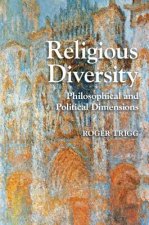
Religious Diversity
28.29 € -15 % -

Golden Bough
31.94 € -

Puppet and the Dwarf
38.13 € -

Magick at the Crossroads: Italian Folk Magic & the Old Religion
21.80 €
Osobný odber Bratislava a 2642 dalších
Copyright ©2008-24 najlacnejsie-knihy.sk Všetky práva vyhradenéSúkromieCookies



 21 miliónov titulov
21 miliónov titulov Vrátenie do mesiaca
Vrátenie do mesiaca 02/210 210 99 (8-15.30h)
02/210 210 99 (8-15.30h)